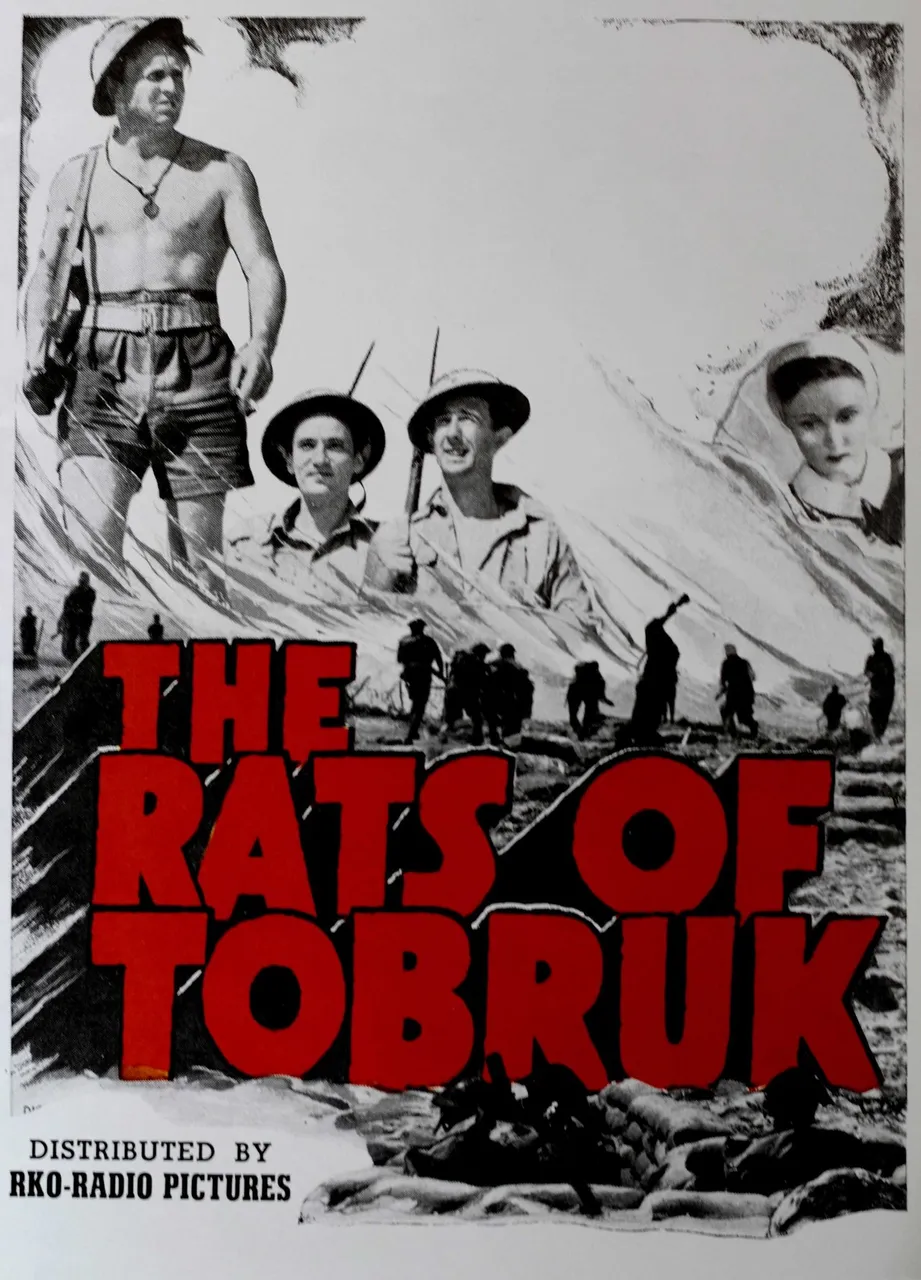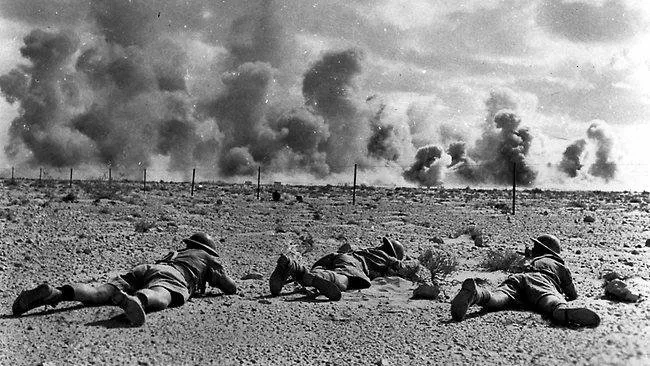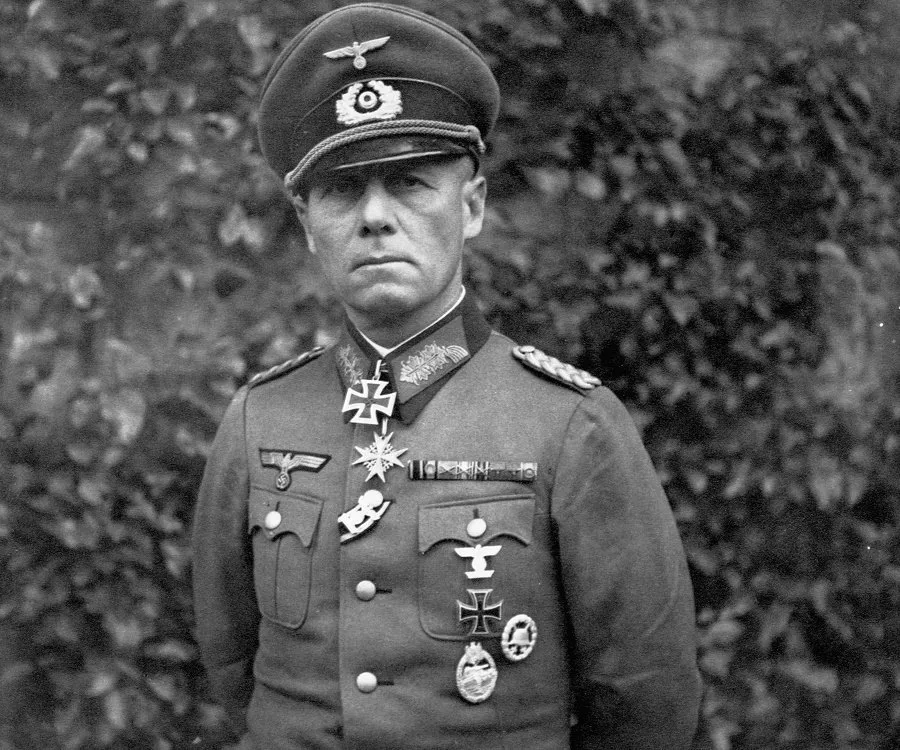
The year 1941 was coming to a close; The second year of World War Two and things were changing. Japan had entered the war and the Australian Government were increasingly concerned about the the threat to Australia and with our troops spread out across the world, including the 6th and 7th Divisions besieged in Tobruk. Their concern was justifiable.
Australia had been left largely undefended but for a few militia units; Poorly trained and equiped, whilst the pride of the country's fighting force the AIF (Australian Imperial Forces) fought in various theatres of war alongside our British and Commonwealth allies.
Australian, General Blamey, had fought long and hard with the British Government for Australia to have ultimate control over the deployment of Australian soldiers and after a protracted campaign to gain control of the Australian forces and where they were deployed, he finally gained the right to do so. As Commander-in-Chief of the Australian Military Forces he wasted no time in taking ultimate control of the Australian forces.
This meant that the Tobruk siege came to a close for the Australian's with a withdrawal (and replacement) process taking place from November 1941. The last Australian unit to exfil Tobruk was the 2/13th, hailed as The Fighting 13th for their single-handed defence of the town during the withdrawal.
After a few weeks of rest and relaxation (which often meant drinking plenty, carousing and trouble-making for the Aussie troops) in Tel Aviv they linked up with the 2/17th and 2/15th and were shipped off to Syria to block any attack on the Suez Canal from the north.
It wasn't long before the 6th and 7th Divisions were headed home to Australia though, to counter the Japanese threat.
The Japanese forces were at the height of their power at that time and into the very early weeks of 1942 had been marching their way down the Malayan Peninsular almost unopposed. Their goal was the British stronghold of Singapore.
As a quick side note to the this part of the war my father, born in 1936, was a 6 year old boy living in occupied Malaya (now Malaysia) at this point of the war. He was forced to attend a Japanese school in his previously British-held town and was accustomed to the Japanese occupation including the rules and regulations imposed: Public beheadings of captured British officers, allied bombings, starvation and other hardships, together with the overall brutality that the Japanese forces applied during their conquests and subsequent occupation. Anyway, those are stories for another time. I look forward to sharing some of them with you as my dad told me many.

On February 15th 1942 Singapore was surrendered to the Japanese. The Allies, including thousands of Australian troops, simply could not withstand the overwhelming Japanese forces. The capture of Singapore meant a further 80,000 Australian and allied soldiers adding to the 50,000 the Japanese had already captured in their advance down the Malayan Peninsular. Most of these ended up in Burma and were used as slave labour on the Burma Railway project initiated by the Japanese. Most did not survive.
What about Tobruk?
The siege of Tobruk involved many sweeping battles not just a force attacking an opposing force in an entrenched position.
The Allies had been pushing Erwin Rommel backwards for a few months and Rommel, due to supply issues, was helpless to strike back. Rommel and his Afrika Corps consolidated at Gazala and then Agheila, rebuilding and re-equipping.
After the Australian's withdrew from Tobruk the town was garrisoned by largely South African troops and in June 1942 Rommel placed the town under siege once more. This time though it only took two days for Tobruk to fall. Yes, two days. The Australian's had held it for eight months.
Rommel drove triumphantly down the main street in his staff car, he now had 2.5 million gallons of fuel and the precious port of Tobruk. The rank of Field Marshal was bestowed on General Rommel for the capture of Tobruk.
Hitler pushed Field Marshal Rommel on towards Cairo and the Suez Canal soon after taking Tobruk and he came within 96 kilometers of the objective before being defeated by the British 8th Army and mighty Australian 9th Division incorporating the 2/13th, 2/17th who were right in the mix against Rommel...Again.
Rommel conducted a tactical retreat and was pushed hard. Hitler had ordered victory or death from Rommel and the Afrika Corps however the retreat continued. Hitler was furious.
An argument between the two ensued and eventually Hitler backed down somewhat. He didn't back the withdrawal but sent more equipment, and Rommel, back to Africa. Rommel continued to conduct his fighting (or tactical) retreat against orders and was able to exfil 250,000 German and Italian troops to Tunis. However, by March 1943 they were all captured by the Allies. Hitler had ordered Field Marshal Rommel back to Germany just prior to this being unwilling to have such a popular figure captured.

Erwin Rommel was later sent to stop the Allied D-Day advance from Normandy and it was during this time his staff car strafed by an allied fighter in July 1944. The car crashed and he was wounded.
Four months later in October 1944 two SS Generals visited his home and accused him of high treason. Rommel was implicated in an attempt to assassinate Hitler; The infamous exploding suitcase attempt as depicted in the Tom Cruise movie [Valkyrie] a few years ago.
After a 15 minute meeting with the SS officers he went downstairs and told his partner Lucie that he would be dead in 15 minutes and said goodbye. They had given him the ultimatum of a quick death, there and then, and a State Funeral and hero-status with the populace, or disgrace, incarceration and the destruction of his wife and family. (And his ultimate death of course). Rommel's son wanted to fight however his father would not permit it telling Manfred...
"To die by the hand of one's own people is hard. But the house is surrounded and I have been charged with high treason. In view of my services in Africa, I am to have the chance of dying by poison. The two officers have brought it with them. Its fatal in three seconds. If I accept, none of the usual steps will be taken against my family, that is, against you. They will also leave my staff alone."
He walked outside with Manfred at his side and shook his son's hand at the gate telling him to look after his mother, entered the staff car with the two officers and the car pulled away and up the road. About a kilometre away it pulled up in a small wooded area and one of the officers gave Rommel the pills.
Around 15 minutes after Rommel had left his house the phone rang. One of the two officers solemnly told Lucie that her husband had suffered a stroke undoubtedly due to the injuries sustained in the the strafing of his car in July and had been hospitalised and he was terribly sorry to inform her that Field Marshal Rommel was dead.

War is a terrible thing but also has a way of bringing out the best and worst of humanity.
Conflicts are usually brutal and costly in life, both military and civilian, and often opposing forces both feel they are on the side of justice.
In the Tobruk campaign conditions were hot, dry and dusty but the men endured. Fighting was brutal and men died, but the men endured. If we put aside the political agenda's of Government's and the leaders of countries, put aside the often complicated reason's for wars and focus on who fights them we'll find that wars are fought by people like you and I; Some may have volunteered and some sent to fight by conscription or force, however they are just people doing a job.
These days we're still plagued with political agenda, greed for territory, resources and religious control and therefore there's still many conflicts. We haven't learned a thing have we? Our soldiers come home from conflicts to suffer all over again with PTSD, the civilian population of war-torn countries suffer and die and corporations get rich. It's a funny old place this planet of ours, or is it us that makes it so? I think the latter.
Due to my love of history and my country, Australia, my focus falls on Australia's military history often however I don't glorify war. I celebrate the human spirit though, the determination a human can display against overwhelming odds and the will to survive. I wonder what sort of planet we would have should that focus be channelled into something productive rather than destructive. I also celebrate veterans across the world for their sacrifices and those who have paid the ultimate sacrifice.
Age shall not weary them, nor the years condemn.
At the going down of the sun and in the morning
We will remember them."
Design and create your ideal life, don't live it by default - Tomorrow isn't promised.
Be well
Discord: galenkp#9209
This is a #showcase-sunday post, as initiated by #nonameslefttouse - Reworked from the original post.
Plaque image source
Tobruk battlefield image source
Rommel image source
Rats of Tobruk image source